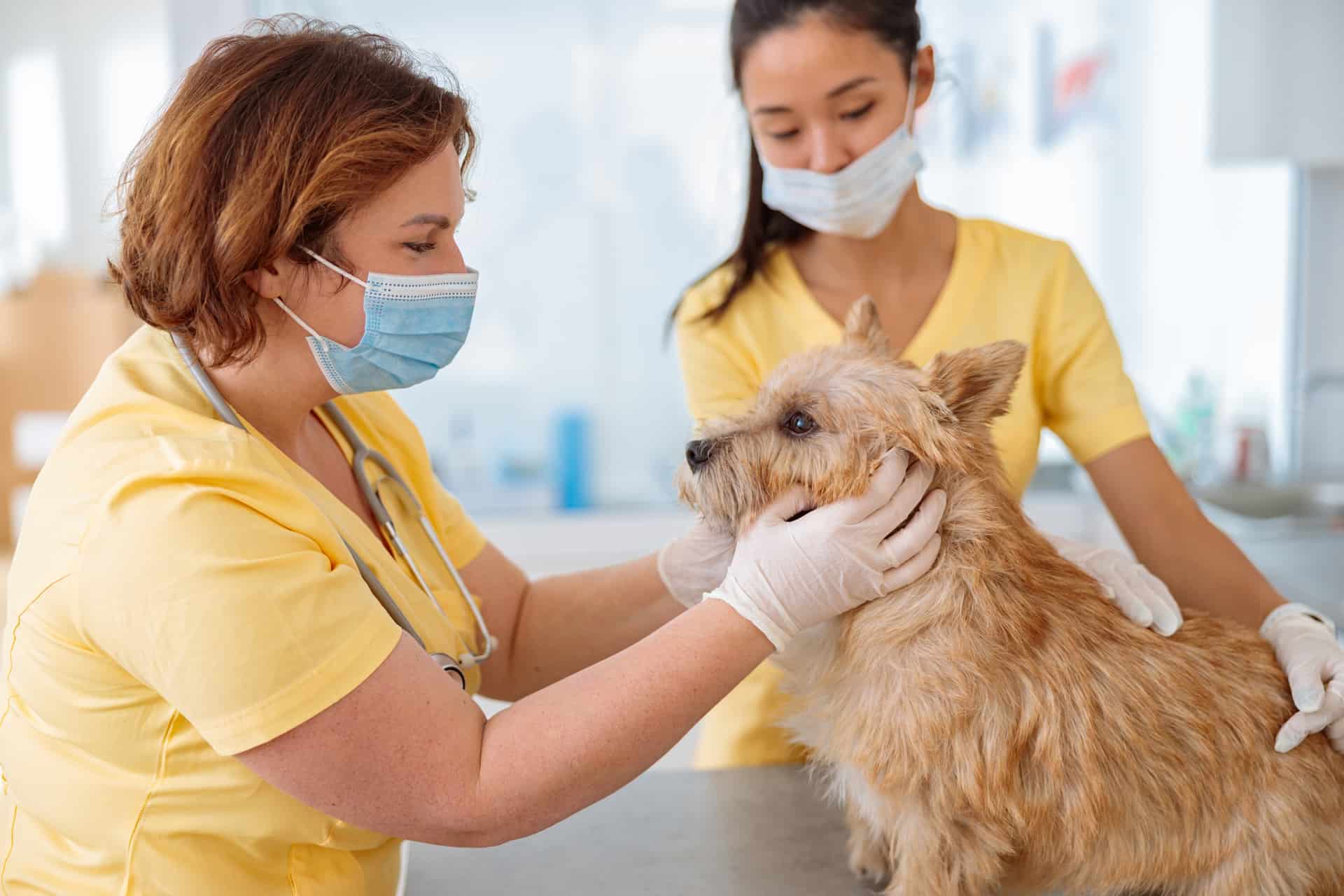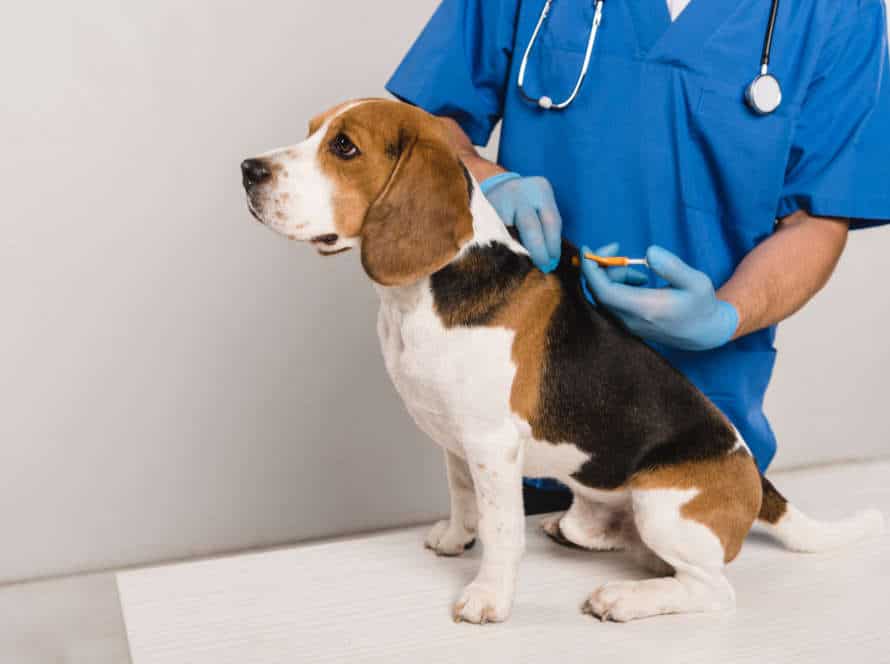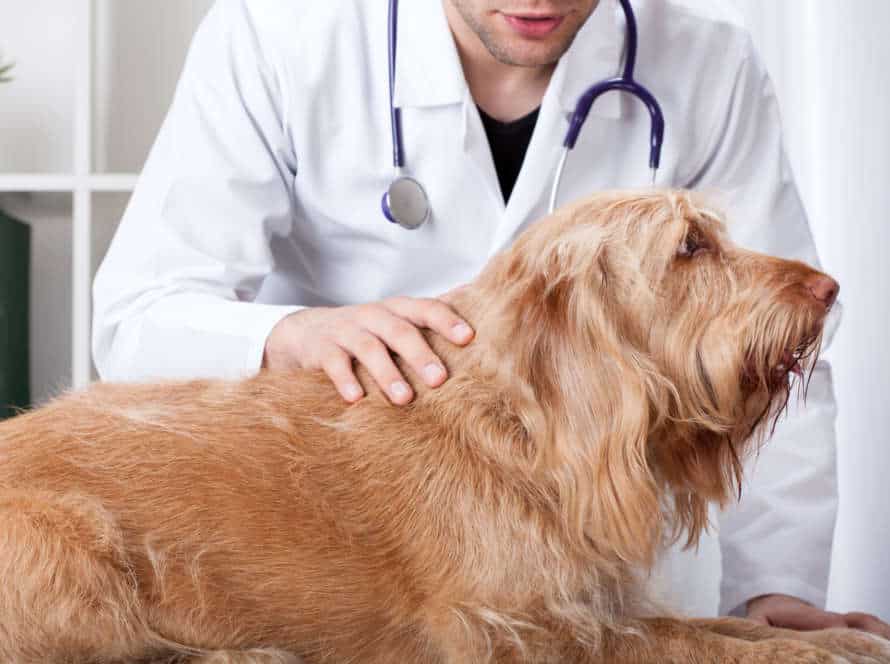The Role of Diet in Your Dog’s Health and Behavior
Diet has a huge impact on your canine’s health and behavior. Nutrients and vitamins in the right balance help protect them from infections and diseases, as well as support their energy, immune system, and mental wellbeing. Here are some tips for a healthy diet for your pup:
- Balance proteins – Lean meats, fish, eggs, and legumes provide protein for muscles and healthy weight.
- Include healthy fats – Salmon, sardines, and flaxseeds make fur shiny and support immune system.
- Carbs – Whole grains, fruits and vegetables give essential vitamins, minerals and fiber.
- Feeding schedule – Consistent schedule regulates digestion and stops overeating.
All in all, the right diet for your dog can make a real difference to their energy, immune system, mental health, and overall wellness. Result? A healthier, happier pet!
Understanding Your Dog’s Nutritional Needs
For your pup’s health and good behaviour, it’s essential to understand their nutritional needs. Good nutrition helps their digestion, fur, skin, immune system and can reduce behavioural issues.
Let’s look at what makes up a balanced diet for your pup:
Nutrients Vital for a Dog’s Health
A pooch’s dietary requirements depend on their breed, age, size, and activity level. Here are some nutrition essentials necessary for a pup’s wellbeing that should be included in their diet:
- Protein: Amino acids from protein sources are essential for a pup’s growth and development, muscle maintenance, and the production of enzymes and hormones.
- Carbs: They provide energy and fuel to a pup’s body, and promote digestive health.
- Fat: It is important for keeping healthy skin and coat, and also provides concentrated energy.
- Vitamins: Vitamins A, B, C, D and E back up different body functions, like good eyesight, tissue growth and repair, immune system health, and more.
- Minerals: Minerals like calcium, phosphorus and potassium support strong bones, teeth, nerve function, and cellular health.
Remember to feed your pup a balanced diet that meets their nutritional needs for optimal health and long life. Pro Tip: Consult your vet for the best diet and feeding plan for your pup based on their individual needs.
How to Read a Dog Food Label
Knowing how to read a dog food label is important. It helps make sure your pup gets the right nutrients for good health and behavior. Here are some things to look for:
- AAFCO Statement: Check if it meets standards from the Association of American Feed Control Officials (AAFCO).
- Ingredients: See what and where the ingredients come from. The 1st one should be a high-quality protein source.
- Guaranteed Analysis: Look for the minimum % of crude protein, fat and fiber.
- Nutritional Adequacy Statement: Make sure it’s complete and balanced for your dog’s life stage and breed.
Remember: Each dog has different nutritional needs. Talk to your vet to get the best diet for your pup.
Different Types of Dog Food
Dog food comes in various types. Responsible pet owners must understand their pup’s nutrition needs and pick the correct diet to support their wellness and behavior. Check out the different kinds of dog food:
- Dry food: Commonly accessible and easy to store. It has a long shelf life and is pocket-friendly. However, not suitable for dogs with dental trouble or picky eaters.
- Wet food: Tastier than dry food. Suitable for choosy dogs or those with dental issues. Has high water content and is easier to digest. But, can be untidy, spoil fast and pricey.
- Semi-moist food: Has a chewy texture and comes in small, bite-sized shapes. Convenient to serve and does not require refrigeration. Nonetheless, contains high levels of salt and sugar, making it unhealthy for dogs in the long run.
The Link Between Diet and Dog Behavior
Diet is majorly important for your pup’s health and conduct. If your pooch is not getting the right nutrition, it could result in physical issues like obesity or joint pain. Likewise, it could also lead to behavioral problems like more aggression or agitation. It’s essential to feed your dog a balanced diet with the correct blend of vitamins and minerals for its wellbeing. Let’s look closer at the relationship between diet and your dog’s behavior!
The Impact of Protein on Behavior
Protein is key for a pup’s wellbeing and behavior. Insufficient nutrition and imbalanced diets can lead to behavioral issues.
How does protein influence behavior?
It helps create neurotransmitters, like dopamine and serotonin, which control feelings and conduct.
A low-protein diet can cause lethargy, bad temper, and aggression. It can also affect a pup’s learning and cognitive function.
On the other hand, a high-protein diet can result in overactivity and restlessness.
Thus, it’s essential to feed your pup a balanced diet that meets their needs. This ensures the optimal health and behavior.
The Role of Carbohydrates in a Dog’s Behavior
Carbs have a big say in a doggy’s doings and their diet can really make a difference in their health and mood. Dogs are mainly carnivores, but they still need carbs for sure. Here’s how those carbs affect their behavior:
- Carbs give pups the energy to be more active and animated.
- They also regulate their blood sugar, keeping them energized all day long.
- Fiber-filled carbs make digestion smoother and can help keep an irritable pup at ease.
- But, too much carbs can lead to weight gain and overexcitement – so make sure to pick the right carbs for your pup’s needs.
Pro Tip: Speak to your vet to get the optimal carb balance in your pup’s diet, to keep them fit and content.
Nutrients for Strong and Healthy Bones
Robust and healthy bones need a balanced diet that is full of essential nutrients. These help to sustain bone health. Here are some crucial nutrients:
- Calcium: Necessary for creating and sustaining strong bones and teeth. Found in dairy, dark leafy greens, and fortified foods.
- Vitamin D: Required to absorb and use calcium. Mostly from sun exposure. Also from fatty fish, egg yolks, and fortified foods.
- Magnesium: Controls calcium levels. Found in wholegrains, nuts, and seeds.
- Vitamin K: Aids bone density. Found in dark, leafy greens and fermented foods.
A balanced diet, exercise, and a healthy lifestyle all aid strong and healthy bones.
Pro tip: Take care of your own diet and lifestyle. Don’t forget your furry friend’s too! Optimal health and behaviour depend on it.
Identifying Food Allergies and Intolerances in Dogs
Knowing that food allergies and intolerances in dogs can differ from humans is key. What your pup eats has a huge impact on their wellbeing and demeanor – if they have an allergy or intolerance to certain foods, it could cause many problems. Pinpointing food allergens or intolerances in dogs is a must for establishing the best diet for them.
Let’s take a closer look at this.
Common Allergens in Dog Food
Common allergens in dog food include chicken, beef, dairy, soy, wheat and corn. Identifying these allergies and intolerances is important for improved health and behavior.
The following symptoms may indicate a food allergy:
- Itchy and inflamed skin.
- Chronic ear infections.
- Digestive issues, such as vomiting, diarrhea or excess gas.
- Behavioral changes like anxiety or aggression.
To determine which food causes the allergic reaction, an elimination diet is a great option. Feed your dog a simple diet of one protein and one carbohydrate source, such as boiled chicken and rice, for at least six weeks. Then, slowly introduce other foods to their diet, monitoring for any symptoms. This can help you identify the allergen and prevent it in the future.
Symptoms of Food Allergies or Intolerance
Watch out for signs of food allergies or intolerance in your pup! Symptoms can range from mild to severe and may differ between dogs. Common signs include:
- Itching around the face, ears, paws and anus.
- Skin inflammation or chronic skin infections.
- Vomiting, diarrhea and flatulence.
- Sneezing or coughing.
- Ear infections with bad odor and discharge.
- Lethargy, hyperactivity, irritability or anxiety.
It’s best to consult your vet for diagnosis. For management, exclude allergenic ingredients like wheat, soy and corn gluten, and make sure your dog has enough protein and nutrients.
How to Choose a Hypoallergenic Dog Food
If your pooch has food sensitivities or allergies, selecting a hypoallergenic dog food is crucial. Excluding the allergens through diet can boost your pup’s wellbeing and attitude. Here are some tips for picking the right hypoallergenic dog food:
- Search for unusual protein sources: Choose a canine food with novel proteins such as duck, venison, or kangaroo instead of the usual animal proteins like chicken or beef, which can cause allergies.
- Evade familiar allergens: Don’t select a dog food containing common allergens such as wheat, soy, or corn.
- Opt for high-grade ingredients: Opt for a dog food that has premium ingredients, free from fillers or artificial preservatives which can spark allergies.
- Ask your vet: Work with your veterinarian to identify specific allergies and dietary needs of your pet and pick a hypoallergenic food that meets those.
Keep in mind, a nourishing diet is critical for your pup’s overall health and can help handle allergies and behavioral problems. Therefore, select carefully and read the label!
Homemade Dog Food: Pros and Cons
Homemade dog food can be a great option for providing your pup with yummy, nutritious meals. You’ll have more control over what goes into the diet, plus you can tailor it to meet specific needs. But, there are some drawbacks to homemade dog food. We’ll check out the pros and cons of making your own doggy diet.
- Pros:
- You can tailor the food to your dog’s specific needs.
- More control over what goes into the diet.
- Can be more cost-effective than high-quality commercial dog food.
- Cons:
- Requires more time and effort to prepare.
- May not provide a balanced diet if not properly planned and executed.
- May not have necessary vitamins and minerals that commercial dog food has.
The Pros of Homemade Dog Food
Homemade dog food has many benefits for your furry friend. You can control the ingredients and quality. Here are some of the advantages:
- High-quality ingredients. Pick proteins, fruits, veggies, and grains that fit your pup’s diet.
- No preservatives. No additives or fillers. This lowers the risk of allergies and digestive issues.
- Cost-efficient. While the start-up cost is higher, it pays for itself over time.
Pro tip: Get a vet or nutritionist to make sure that the food meets all your pup’s nutritional needs.
The Cons of Homemade Dog Food
Homemade dog food has its perks, but there are a few drawbacks too. One: it takes energy and planning, as you’ll need to research your pup’s meals to make sure they get all the vitamins they need. Two: it could be pricier than store-bought food, especially if you’re buying high-quality ingredients. Three: it can get contaminated more easily, which means it might put you and your pup in danger. Four: it could be missing essential nutrients, risking your pup’s health.
Before switching to homemade meals, make sure to talk to your veterinarian. And, if you do go for homemade, use a balanced recipe that meets your pup’s needs and follow food safety protocols to avoid contamination.
How to Make Homemade Dog Food Safely
Making homemade dog food is a great way to give your pet a tailored, balanced diet. But, you must follow safety rules to make sure the food is safe and nutritious for your dog. Here are some tips:
- Speak with a vet or canine nutritionist to make a balanced diet plan.
- Use top-notch, fresh ingredients. Avoid harmful foods like chocolate, garlic, onions, and grapes.
- Clean your hands, tools, utensils, and surfaces before & after handling the food.
- Cook meat and eggs completely to get rid of bad bacteria and pathogens.
- Store the food in sealed containers. Refrigerate/freeze it to avoid spoilage.
- Monitor your dog’s health and behaviour to make sure the homemade food is meeting their nutritional needs, not causing any bad effects.
Pro Tip: Homemade dog food isn’t suitable for all dogs, especially those with medical conditions. Always talk to a vet first!
Overcoming Picky Eating and Indigestion in Dogs
Diet is key for your pup’s health and behavior. But it can be tough to get it just right, particularly if they are fussy eaters or have indigestion. Let’s look at some tips to tackle picky eating and indigestion in dogs. Plus, why a balanced diet is so important.
Reasons for Picky Eating Habits
Picky eating habits in dogs can have various reasons, and it’s essential to determine the cause. Here are some common ones:
- Dental issues – like pain, inflammation, or infection in teeth, gums, or mouth can make it tough and painful to chew and swallow food.
- Behavioral issues – if owners offer too many treats or table scraps, dogs might learn to become picky eaters.
- Health problems – digestive issues, food allergies, or infections can affect a dog’s appetite and eating habits.
- Poor diet – low-quality dog food or lack of proper nutrients can lead to malnourishment and picky eating.
To promote healthy eating, it’s important to provide a balanced and complete nutrition. Also, address any medical or behavioral issues.
Pro Tip: Ask your vet to identify the root cause and make a tailored diet and treatment plan for your furry friend.
Remedies for Picky Eating
Picky eating can be a nightmare for dog owners. But don’t worry, there are some remedies to help. An important factor is a balanced diet, which is vital for your pup’s health and behavior. Here they are:
- Consistency: Follow a regular feeding schedule, even if your dog isn’t eating much. Avoid overfeeding or too many treats as this can lead to obesity.
- Flavour: Mix in wet food, broth, or low-sodium chicken/beef stock for extra flavour and aroma.
- Texture: Test different textures to see what your furry friend prefers. Kibble or wet food, or a bit of both?
- Medical causes: If their fussiness is sudden or unusual, take them to the vet for a check-up.
- Probiotics: Talk to your vet and provide probiotics to help with digestion.
- Patience: Be patient and keep trying. Dogs need time and encouragement to adjust to new foods.
By using these remedies, you can tackle picky eating and make sure your dog’s diet is nutritious.
Treating Digestion Issues in Dogs
Digestive issues are a common problem faced by pet owners, especially with dogs. It’s possible to overcome these issues with the right diet and nutrition.
- First, don’t feed your dog table scraps or human food.
- Second, get a high-quality protein diet that meets your dog’s nutritional needs depending on age, breed, and size.
- Third, make sure your dog stays hydrated with fresh water.
- To beat picky eating, try serving half the meal in the morning, half at night. Also, add wet or canned food with kibble to interest your pet.
- For indigestion, you can add dietary supplements or feed smaller meals throughout the day.
Watch for changes in appetite, energy, or stool. Contact a vet if symptoms last too long or come with vomiting, diarrhea, or other severe signs.
Frequently Asked Questions
Q: What role does a dog’s diet play in their overall health and behavior?
A: A dog’s diet is crucial to their health and behavior as it provides them with the necessary nutrients and energy they need to function properly. A well-balanced diet can also affect their behavior by reducing hyperactivity and improving their mood and cognitive function.
Q: What should I look for in a good quality dog food?
A: Look for a dog food that has high-quality protein as the primary ingredient, followed by other ingredients that provide essential nutrients. Avoid dog foods that contain fillers, by-products, and artificial preservatives or flavors.
Q: How often should I feed my dog?
A: Adult dogs should be fed twice a day, while puppies require more frequent meals as they have higher energy requirements. Consult with your veterinarian for specific feeding recommendations based on your dog’s age, breed, and activity level.
Q: Can I give my dog human food?
A: Some human foods are safe for dogs, while others can be toxic. Foods like lean meats, fruits, and vegetables can be given in small amounts as healthy treats, but foods like chocolate, onions, and grapes should be avoided. Consult with your veterinarian for specific guidelines on feeding human food to your dog.
Q: Should I consider a raw food diet for my dog?
A: Raw food diets are a controversial topic in the veterinary community. While some dogs may benefit from a raw food diet, it can also pose health risks to dogs and humans due to the potential for bacterial contamination. Consult with your veterinarian before considering a raw food diet for your dog.
Q: What should I do if my dog has dietary restrictions or allergies?
A: Consult with your veterinarian for recommendations on a specialized diet for your dog’s specific needs. There are many dog foods on the market that cater to dogs with dietary restrictions or allergies.







